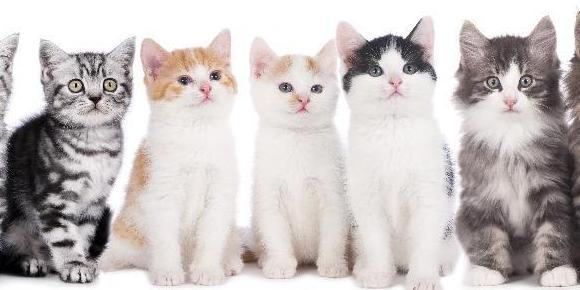
Is “Community” Cat Boarding Right for you?
As our winter snows have finally melted and we are thawing out after the frigid, cold and rainy Issaquah winter, we all look forward to the summer sun and inevitable vacations we have planned. While our furry feline family members are notoriously self-reliant (many times to a fault), they too need care including food and (minimally) fresh water twice daily. Some of us choose a standard boarding facility but many clients have asked us (specifically) how enriching is a boarding kennel? More than a few times our staff gets asked about boarding at “communal” boarding facilities where cats are allowed to “socialize” in a communal setting. As a multiple cat-owner, an afficianado of annual dive trips (work hard, play hard – right?) and an adamant advocate for feline veterinary health standards, I too have been intrigued by community boarding. My obvious conflict-of-interest aside (I run a medically-oriented boarding facility), it’s clear to me that there are questions that you need to ask before booking.
- Social butterfly or social stink bug?
Let’s face it, most cats are not social when they meet a stranger (admit it, your cat has probably hissed or gotten hissed at once or twice in their lives). Introductions of new cats to a household can take months to do properly. Even then, social standing and dynamics between cats can often change by the second. Changes to furniture, schedule, health and age of cats, maturity, etc. can all dramatically effect social hierarchy. Although a few social butterflies do exist, suffice-it-say, the vast majority of cats are not social. Imagine what happens when your cat is now taken from their home and immersed in an environment with 10, 20 or 30 cats… I know for a fact my Opal (my 15 year-old that many of our veterinary clinic patrons have met and love) would pick a fight with pretty much every cat in the room whereas my oldest Onyx (my 20 year-old) would cower in fear and hiss at everything that passed by. Cats that are stressed get sick. Cats that cower in fear don’t eat or drink normally and cats that are amped up and stressed suffer equally. In addition, even minor bites and scratches from cats can quickly get infected requiring medical intervention.
- Sharing food, Sharing Water, Sharing Litter... Sharing roundworms, giardia, FIV, FeLV…
State requirements do not include routine fecals and every boarding facility has different policies and requirements. Some require a fecal test and some do not. Some require giardia fecal testing, some do not. Very few require routine negative tests for FeLV (feline leukemia virus) and FIV (Feline Immunodeficiency Virus) two notorious and contagious feline viruses. Cats that share food and share water are at high risk of FeLV transmission. Cats that can fight or bite each other are at high risk of FIV transmission. With both diseases, all it takes is one individual who is positive and everyone can get infected. FIV has no reliable vaccine. Cats that are communal most likely will share a communal litterbox. That litterbox can harbor any number of feline pests and parasites. Considering that it is not uncommon for cats to shed parasites intermittently (they will shed this week or month but not next month, but they are still very infected) it’s important that routine fecals be done prior to boarding (periodically, not just once a year or quarterly for boarding in a communal facility). The moral of this story, only the most controlled environment and testing (both for fecals, FeLV, FIV, etc.) and/or vaccinating ALL boarding individuals for FeLV will truly limit your cat’s risk. In this case, your concern should be for your cat’s safety alone so read the fine-print and understand the strengths and weakness in your boarding facility’s policies (communal or not).
Your Practice Manager's Parting Thoughts:
"I love the premise of community boarding but not for most cats. Even for dogs (where it is most common and socially makes the most sense), there were closures across the country due to canine influenza and suspected cases. It is challenging enough as both a boarding facility owner and also a patron (yes, my own cats semi-permanently board in my own facility) to enact veterinary health policies that protect cats but don’t financially burden owners. Ultimately, you know your cat best and can make health choices that protect their health before, during and after communal boarding."
Your Medical Director's Parting Thoughts:
"From a veterinarian’s standpoint, medical safety and standards trump all other concerns. As your cat’s medical advocate, I always strive to pursue the utmost in gold-standard feline medicine and let (you) the clients and readers choose a path forward based on your budget and priorities. Having said that, the relatively modest prices needed for routine FeLV/FIV testing and fecals should ideally not be a compromise to medical standards in any boarding facility. Even then and medical standards set aside, the unique temperament of each individual cat has to be considered when boarding. Clean, healthy and QUIET (no dogs in the building, period) boarding facilities are going to benefit the vast majority of cats more than a communal social setting. While I can definitely see the benefits in offering cat boarders time out in larger areas, even then, stressed felines may still prefer the relatively cozy confines of their kennel.—As a reminder, even kennel closures can be quite cozy for felines given good bedding, a scented (of the owner) t-shirt or blanket, etc. The reality is that many (most) cats are stressed during boarding and anything we can do to reduce that stress (based on the unique needs of each individual cat) will only benefit them. Remember, if you have questions about boarding, don't hesitate to call 425-392-8770 our technicians or veterinarians so we can design a vaccination and parasite prevention plan to best protect your feline while boarding"
